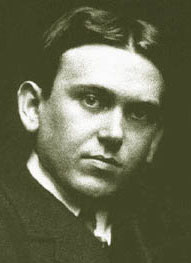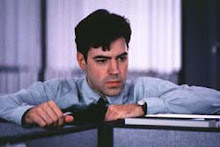On the eve of the election that someone on the radio this morning labeled “historic”, it’s always beneficial to look back at Henry Louis Mencken for guidance.

1. Every election is a sort of advance auction sale of stolen goods.
2. A good politician is quite as unthinkable as an honest burglar.
3. A politician is an animal which can sit on a fence and yet keep both ears to the ground.
4. Democracy is a pathetic belief in the collective wisdom of individual ignorance.
5. Democracy is also a form of worship. It is the worship of jackals by jackasses.
6. Democracy is the art and science of running the circus from the monkey cage.
7. Democracy is the theory that the common people know what they want, and deserve to get it good and hard.
8. Every decent man is ashamed of the government he lives under.
9. If a politician found he had cannibals among his constituents, he would promise them missionaries for dinner.
H. L Mencken, selected quotes
The notion that a radical is one who hates his country is naïve and usually idiotic. He is, more likely, one who likes his country more than the rest of us, and is thus more disturbed than the rest of us when he sees it debauched. He is not a bad citizen turning to crime; he is a good citizen driven to despair.
H. L Mencken, letter to Upton Sinclair
All government, in its essence, is a conspiracy against the superior man; its one permanent object is to oppress him and cripple him. If it be aristocratic in organisation, then it seeks to protect the man who is superior only in law against the man who is superior in fact; if it be democratic, then it seeks to protect the man who is inferior in every way against both. One of its primary functions is to regiment men by force, to make them as much alike as possible and as dependent upon one another as possible, to search out and combat originality among them. All it can see in an original idea is potential change, and hence an invasion of its prerogatives. The most dangerous man, to any government, is the man who is able to think things out for himself, without regard to the prevailing superstitions and taboos. Almost inevitably he comes to the conclusion that the government he lives under is dishonest, insane and intolerable, and so, if he is romantic, he tries to change it. And even if he is not romantic personally he is very apt to spread discontent among those who are …
What lies behind all this, I believe, is a deep sense of the fundamental antagonism between the government and the people it governs. It is apprehended, not as a committee of citizens chosen to carry on the communal business of the whole population, but as a separate and autonomous corporation, mainly devoted to exploiting the population for the benefit of its own members … When a private citizen is robbed a worthy man is deprived of the fruits of his industry and thrift; when the government is robbed the worst that happens is that certain rogues and loafers have less money to play with than they had before. The notion that they have earned that money is never entertained; to most sensible men it would seem ludicrous. They are simply rascals who, by accidents of law, have a somewhat dubious right to a share in the earnings of their fellow men.
This gang is well-nigh immune to punishment. Its worst extortions, even when they are baldly for private profit, carry no certain penalties under our laws. Since the first days of the Republic, less than a dozen of its members have been impeached, and only a few obscure understrappers have ever been put into prison. The number of men sitting at Atlanta and Leavenworth for revolting against the extortions of government is always ten times as great as the number of government officials condemned for oppressing the taxpayers to their own gain … There are no longer any citizens in the world; there are only subjects. They work day in and day out for their masters; they are bound to die for their masters at call … On some bright tomorrow, a geological epoch or two hence, they will come to the end of their endurance …
H. L. Mencken, Chrestomathy





No comments:
Post a Comment
You are not entitled to your opinion. You are entitled to your informed opinion. No one is entitled to be ignorant.
Harlan Ellison